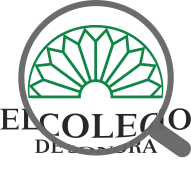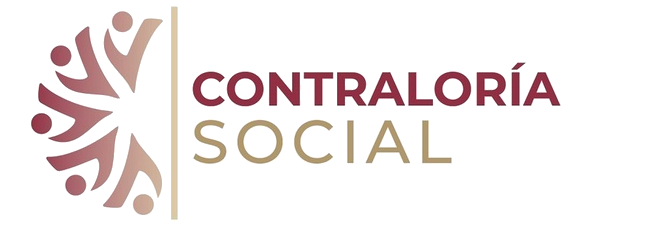Mostrar el registro sencillo del ítem
Characterization of Irrigation District Water User Associations and Presence of Local Organizations
Caracterización de los módulos de los distritos de riego y presencia de organizaciones locales
| dc.contributor.author | Palerm Viqueira, Jacinta | |
| dc.coverage.spatial | MX-SON | en-US |
| dc.creator | PALERM VIQUEIRA, JACINTA; 15130 | |
| dc.date | 2020-08-25 | |
| dc.date.accessioned | 2022-06-28T19:43:09Z | |
| dc.date.available | 2022-06-28T19:43:09Z | |
| dc.date.issued | 2020-08-25 | |
| dc.identifier | https://regionysociedad.colson.edu.mx:8086/index.php/rys/article/view/1335 | |
| dc.identifier | https://doi.org/10.22198/rys2020/32/1335 | |
| dc.identifier.uri | https://repositorio.colson.edu.mx/handle/2012/46027 | |
| dc.description | The irrigation districts water user associations (módulos) have features that differ from those of, also self-governed, traditional irrigation organizations. The first objective of this article is to characterize distinctive features. The second objective is to explore, in the módulos, the presence of informal local organizations. The comparative method (between types of organizations and between módulos) as well as the ethnographic method (at the módulos) is used. The results encompass characterization of distinctive features and fact based determination of presence of local organizations in the módulos. The case studies of módulos, in relation to the universe of irrigation districts, are limited. However, the approach is novel, few studies contrast organizational types and there are few ethnographies from the local viewpoint for the módulos. It is shown that there are substantive differences between the organizational types, and that despite the rigidity and centralization of the organizational design of the módulos, there is local organizational effervescence. | en-US |
| dc.description | Los módulos de los distritos de riego a pesar de contar con autogobierno tienen rasgos que difieren de aquellos de organizaciones de riego tradicionales con autogobierno. El primer objetivo del presente trabajo es caracterizar esos rasgos distintivos. El segundo objetivo es explorar la presencia de organizaciones locales informales en los módulos. Se emplean dos métodos: el comparativo (entre tipos de organizaciones y entre módulos) y el método etnográfico (en los módulos de riego). Los resultados son la caracterización de los rasgos distintivos y la documentación sobre la presencia de organizaciones locales en los módulos. Los estudios de caso de módulos, en relación con el universo de distritos de riego son limitados. No obstante, el abordaje es novedoso. Pocos estudios contrastan dichas organizaciones y hay pocas etnografías de lo local en los módulos. Se muestra que hay diferencias sustantivas entre esas organizaciones y que, no obstante la rigidez y la centralización del diseño organizativo de los módulos, hay en éstos efervescencia organizativa local. | es-ES |
| dc.description.abstract | The irrigation districts water user associations (módulos) have features that differ from those of, also self-governed, traditional irrigation organizations. The first objective of this article is to characterize distinctive features. The second objective is to explore, in the módulos, the presence of informal local organizations. The comparative method (between types of organizations and between módulos) as well as the ethnographic method (at the módulos) is used. The results encompass characterization of distinctive features and fact based determination of presence of local organizations in the módulos. The case studies of módulos, in relation to the universe of irrigation districts, are limited. However, the approach is novel, few studies contrast organizational types and there are few ethnographies from the local viewpoint for the módulos. It is shown that there are substantive differences between the organizational types, and that despite the rigidity and centralization of the organizational design of the módulos, there is local organizational effervescence. | en-US |
| dc.description.abstract | Los módulos de los distritos de riego a pesar de contar con autogobierno tienen rasgos que difieren de aquellos de organizaciones de riego tradicionales con autogobierno. El primer objetivo del presente trabajo es caracterizar esos rasgos distintivos. El segundo objetivo es explorar la presencia de organizaciones locales informales en los módulos. Se emplean dos métodos: el comparativo (entre tipos de organizaciones y entre módulos) y el método etnográfico (en los módulos de riego). Los resultados son la caracterización de los rasgos distintivos y la documentación sobre la presencia de organizaciones locales en los módulos. Los estudios de caso de módulos, en relación con el universo de distritos de riego son limitados. No obstante, el abordaje es novedoso. Pocos estudios contrastan dichas organizaciones y hay pocas etnografías de lo local en los módulos. Se muestra que hay diferencias sustantivas entre esas organizaciones y que, no obstante la rigidez y la centralización del diseño organizativo de los módulos, hay en éstos efervescencia organizativa local. | es-ES |
| dc.language.iso | spa | |
| dc.publisher | El Colegio de Sonora | es-ES |
| dc.rights | Derechos de autor 2020 Jacinta Palerm Viqueira | es-ES |
| dc.rights | https://creativecommons.org/licenses/by-nc/4.0/ | es-ES |
| dc.rights | info:eu-repo/semantics/openAccess | es-ES |
| dc.source | 2448-4849 | |
| dc.source | 1870-3925 | |
| dc.source | región y sociedad; Vol. 32 (2020): Rolling Pass; e1335 | en-US |
| dc.source | región y sociedad; Vol. 32 (2020): Publicación continua; e1335 | es-ES |
| dc.subject | Ciencias Sociales | |
| dc.subject | Mexico | en-US |
| dc.subject | Water user associations | en-US |
| dc.subject | Irrigation districts | en-US |
| dc.subject | Bureaucratic administration | en-US |
| dc.subject | Local organizations| | en-US |
| dc.subject | México | es-ES |
| dc.subject | Módulos | es-ES |
| dc.subject | Distritos de riego | es-ES |
| dc.subject | Administración burocrática | es-ES |
| dc.subject | Organizaciones locales | es-ES |
| dc.subject.lcsh | Mexico | en-US |
| dc.subject.lcsh | Water user associations | en-US |
| dc.subject.lcsh | Irrigation districts | en-US |
| dc.subject.lcsh | Bureaucratic administration | en-US |
| dc.subject.lcsh | Local organizations| | en-US |
| dc.subject.lcsh | México | es-ES |
| dc.subject.lcsh | Módulos | es-ES |
| dc.subject.lcsh | Distritos de riego | es-ES |
| dc.subject.lcsh | Administración burocrática | es-ES |
| dc.subject.lcsh | Organizaciones locales | es-ES |
| dc.title | Characterization of Irrigation District Water User Associations and Presence of Local Organizations | en-US |
| dc.title | Caracterización de los módulos de los distritos de riego y presencia de organizaciones locales | es-ES |
| dc.type | info:eu-repo/semantics/article | |
| dc.type | info:eu-repo/semantics/publishedVersion | |
| dc.audience | generalPublic | |
| dc.coverage | español | en-US |
| dc.coverage | Distritos de Riego en México | es-ES |
| dc.identificator | 5 |
Ficheros en el ítem
| Ficheros | Tamaño | Formato | Ver |
|---|---|---|---|
|
No hay ficheros asociados a este ítem. |
|||










